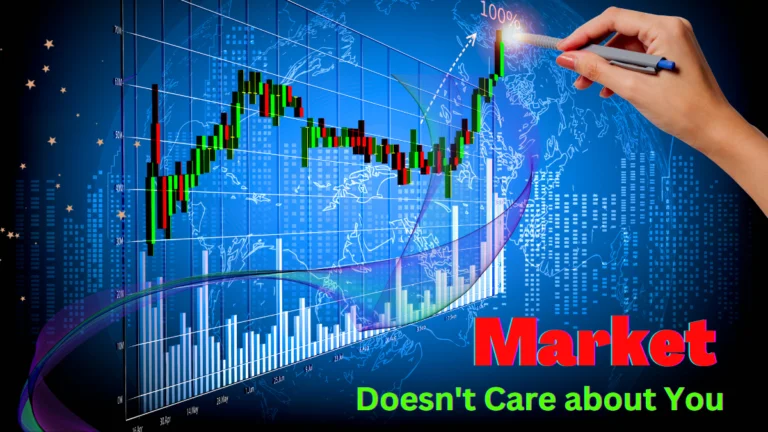Oh, wow. You’re reading this. That mean you have some serious money to invest, right? Well congratulations!
Because in this market, even the best investors can get burned by a downturn in the stock market. But don’t worry! With some preparation and smart buying decisions, you’ll be ready to ride out any storm (and make a ton of money).
The market doesn’t care about you, or your account balance.
The market doesn’t care about you, or your account balance.
The market doesn’t care if you’re frustrated with it or not, or if it makes sense to invest in an asset class that has dropped 30% in value over the last year.
The market is not a person, and it doesn’t have feelings like we do. It’s just an abstract set of data points that tell us nothing about who we are as individuals—or what makes us unique from one another.
The market will always be around tomorrow. Nothing to worry about.
The market will always be around tomorrow. Nothing to worry about.
The market doesn’t care about you, your account balance or how much money you have in it. It doesn’t care if your emotions are high or low and it certainly doesn’t care if your goals are personal or professional—the only thing that matters is what’s happening on the ground floor of Wall Street (or wherever else).
Always be prepared to buy at a great price.
This is a lesson that you should always keep in mind, no matter what your emotions are telling you. The market will always be around tomorrow and next week, so don’t worry about it.
The stock market doesn’t care about you or anything else; it’s just a machine that makes money off of other people’s money (and sometimes even its own).
If a stock has good fundamentals, then the price of that stock is going to go up—but if it doesn’t have good fundamentals and there are no reasons why the price should go up anytime soon (or ever), then don’t expect any miracles from this “machine.”
Focus on the companies you want to own, and not the stocks you want to trade.
The market doesn’t care about you.
It might seem like a harsh statement, especially if you’ve been working hard at building your portfolio and watching it grow over time.
But the reality is that the stock market moves in cycles, and there are many factors outside of what we can control (such as the economy) which will dictate whether or not stocks perform well or poorly over any given period of time.
So if you want to succeed as an investor, don’t worry about buying shares of companies whose performance is dependent on factors beyond your control—focus instead on those companies whose performances are driven by things within your sphere of influence.
Being in the market doesn’t mean you don’t have control.
Being in the market doesn’t mean you don’t have control.
You can control your emotions, risk tolerance and trading strategy. You have the power to choose what kind of portfolio will work for you over time by using different strategies and determining which ones are most suitable for your investment goals.
The market is always changing its course, so it’s important to stay flexible when it comes to investing in order not to miss out on opportunities that arise from unexpected events (such as an economic downturn).
Your emotions can affect your returns.
It’s easy to get caught up in the moment, but it’s also important to understand that your emotions can affect your returns. Emotions are a powerful force and they can make us do things we wouldn’t normally do.
For example, if you’re feeling angry or anxious while trading, this could cause you to react rashly and impulsively when deciding what investments to buy or sell—and ultimately lead to poor decisions that don’t provide any long-term benefit for yourself or anyone else involved with the market (including yourself).
You need to protect yourself from yourself.
You need to protect yourself from yourself.
The market doesn’t care about you, and it won’t take pity on you when things get tough. If the market is going up, then that means that everyone else is also buying stocks.
You can’t win against the crowd if they all want what your company has.The best way for a small business owner or investor like yourself is not to get emotional about losing money or being afraid of making rash decisions based on fear instead of logic (or maybe even common sense).
It’s better for them to make a lot of money investing in their ventures than having those dollars lost because they were overly emotional about what was happening in their lives at any given moment.
You should adjust your strategy depending on the market environment
If you want to be successful in the market, you need to adjust your strategy depending on the environment. The market doesn’t care about what you think or feel; it just cares about whether or not prices are moving higher or lower.
If a stock is going up, then it might make sense for you to buy more of that stock at a lower price than normal (i.e., “buying on the dip”).
But if that same stock is going down because buyers are leaving due to rising expectations around earnings expectations and other factors such as news releases, then it may be time for some selling so that your portfolio won’t get too concentrated in one area at once–which could lead investors away from allocating capital into those stocks later down this road (i.e., “selling off”).
Conclusion
You need to be flexible and adapt your strategy when things get tough. That’s what makes you a trader – a problem solver!

1 thought on “The Market Doesn’t Care About You”